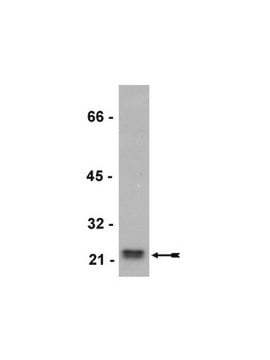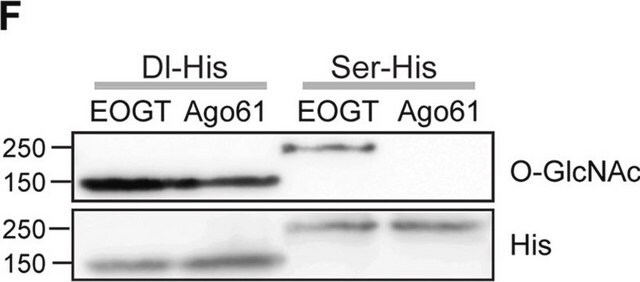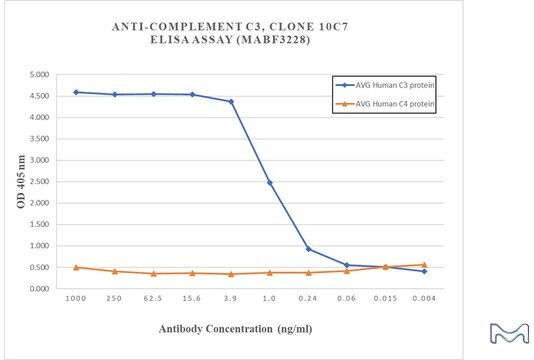14-279
Akt1/PKBα Protein, inactive, 50 g
Unactive, N-terminal His6-tagged recombinant full-length human Akt1, for use in Kinase Assays.
Sign Into View Organizational & Contract Pricing
All Photos(1)
About This Item
UNSPSC Code:
12352202
eCl@ss:
32160405
NACRES:
NA.26
Recommended Products
biological source
human
Quality Level
recombinant
expressed in baculovirus infected Sf21 cells
mol wt
Mw 59 kDa
manufacturer/tradename
Upstate®
technique(s)
activity assay: suitable (kinase)
NCBI accession no.
UniProt accession no.
shipped in
dry ice
General description
N-terminal His6-tagged recombinant full-length human Akt1
Quality
routinely evaluated by phosphorylation of Crosstide
Other Notes
For Specific Activity data, refer to the Certificate of Analysis for individual lots of this enzyme.
Legal Information
UPSTATE is a registered trademark of Merck KGaA, Darmstadt, Germany
Signal Word
Warning
Hazard Statements
Precautionary Statements
Hazard Classifications
Skin Sens. 1
Storage Class Code
10 - Combustible liquids
WGK
WGK 2
Certificates of Analysis (COA)
Search for Certificates of Analysis (COA) by entering the products Lot/Batch Number. Lot and Batch Numbers can be found on a product’s label following the words ‘Lot’ or ‘Batch’.
Already Own This Product?
Find documentation for the products that you have recently purchased in the Document Library.
Hiroshi Senoo et al.
Nature cell biology, 21(7), 867-878 (2019-07-03)
mTORC2 plays critical roles in metabolism, cell survival and actin cytoskeletal dynamics through the phosphorylation of AKT. Despite its importance to biology and medicine, it is unclear how mTORC2-mediated AKT phosphorylation is controlled. Here, we identify an unforeseen principle by
Chang Hwa Jung et al.
Autophagy, 7(10), 1212-1221 (2011-07-29)
ULK1 (Unc51-like kinase, hATG1) is a Ser/Thr kinase that plays a key role in inducing autophagy in response to starvation. ULK1 is phosphorylated and negatively regulated by the mammalian target of rapamycin complex 1 (mTORC1). Previous studies have shown that
K Shanmugasundaram et al.
Oncogene, 32(16), 2027-2036 (2012-06-27)
The cyclin-dependent kinase inhibitor p27 is a key regulator of cell-cycle progression. Its expression and localization are altered in several types of malignancies, which has prognostic significance in cancers such as renal cell carcinoma (RCC). S-phase kinase-associated protein 2 (SKP-2)
Han C Dan et al.
Oncotarget, 7(16), 21064-21075 (2016-03-31)
The ser-thr Akt plays a critical role in the regulation of cell survival, cell growth and proliferation, as well as energy metabolism and is dysregulated in many cancers. The regulation of Akt activity depends on the phosphorylation at two sites:
Dos D Sarbassov et al.
Molecular cell, 22(2), 159-168 (2006-04-11)
The drug rapamycin has important uses in oncology, cardiology, and transplantation medicine, but its clinically relevant molecular effects are not understood. When bound to FKBP12, rapamycin interacts with and inhibits the kinase activity of a multiprotein complex composed of mTOR
Our team of scientists has experience in all areas of research including Life Science, Material Science, Chemical Synthesis, Chromatography, Analytical and many others.
Contact Technical Service









